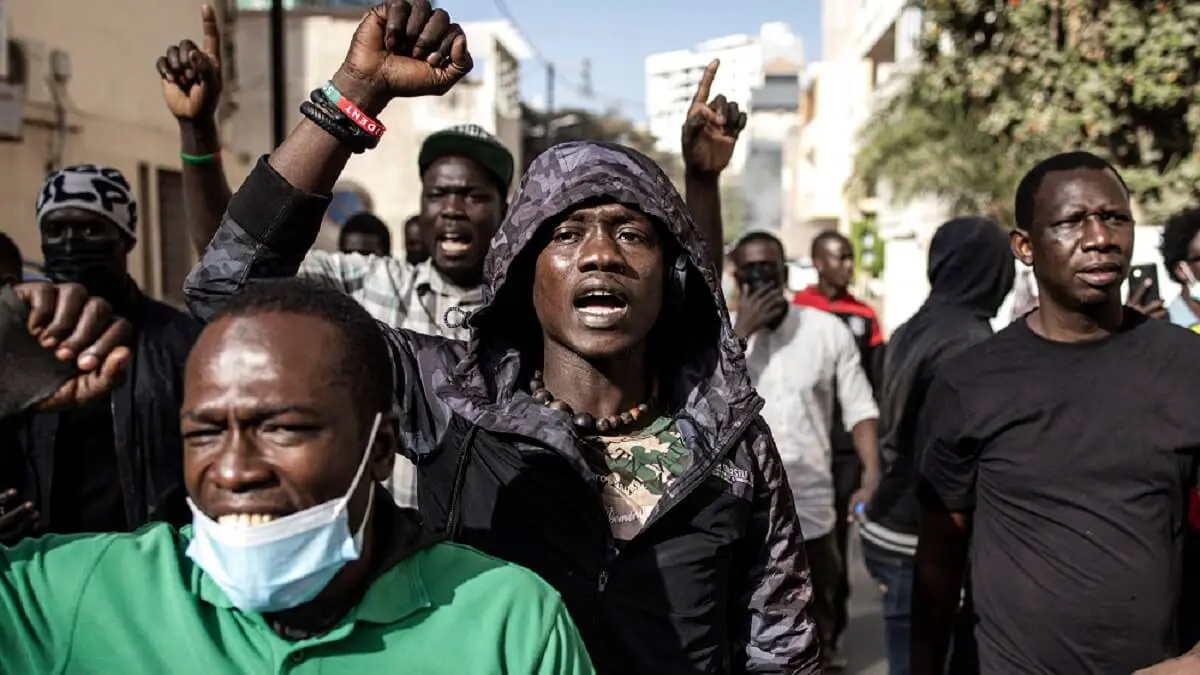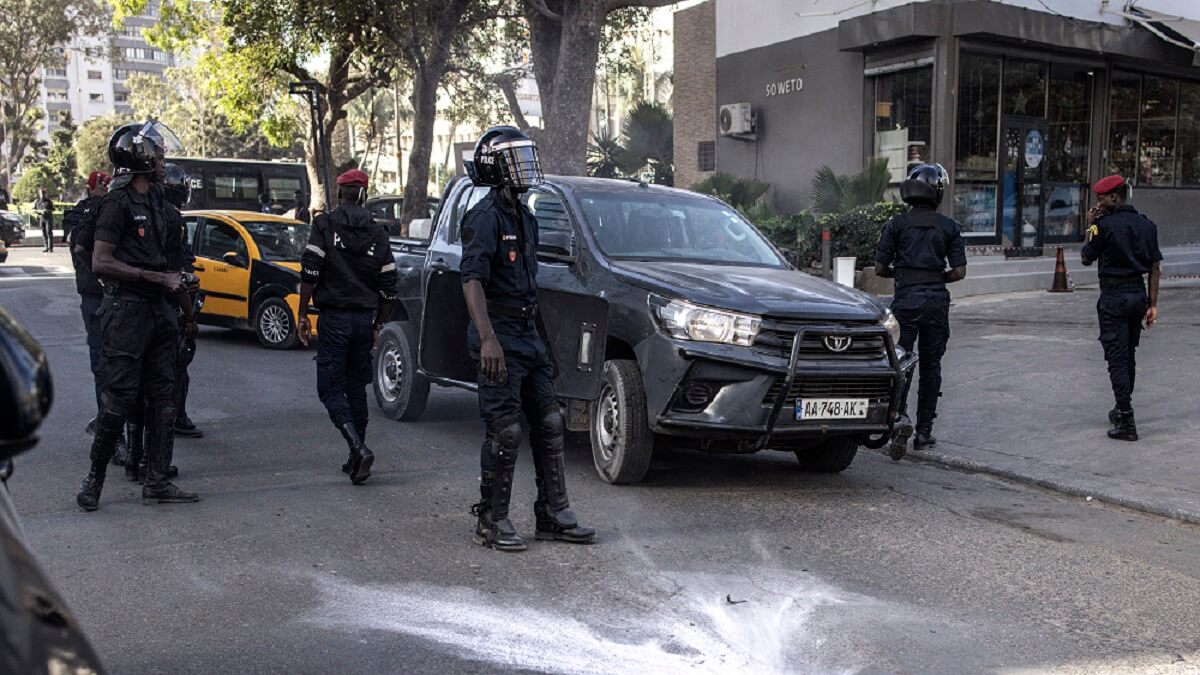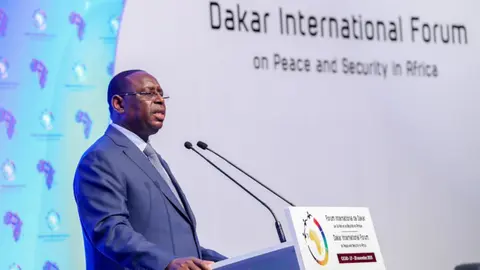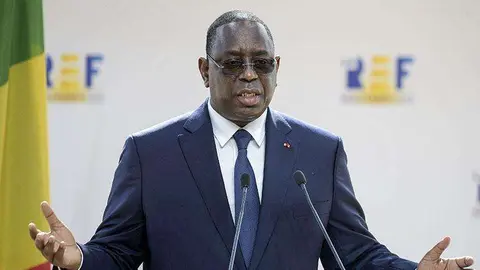Crisis in Senegal: crucial debate in parliament, sporadic clashes outside the Assembly

On Monday, Senegalese MPs began examining a critical text that would allow the postponement of presidential elections, sparking fresh clashes outside the National Assembly, which had been turned into a citadel by the police presence.
The gendarmes fired tear gas canisters to disperse small groups trying to gather in front of the Assembly at the call of the opposition, who retreated further away chanting "Macky Sall dictator", in reference to the Senegalese president.
The Plateau district, the seat of political decision-making, offered the rare spectacle of a small number of protesters playing cat and mouse with the security forces, while the people of Dakar went about their business around the Assembly, protected by dozens of gendarmes and police backed by heavy vehicles.
One of the protesters, Malick Diouf, 37, has no preferred candidate or even an electoral card, but felt the need to come and protest.
"The main thing for me is to say no to this political agenda, to this coup de force to try to stay in power," he told AFP.
Senegal, reputed as an island of stability in West Africa, has been plunged into intense tensions since President Sall announced on Saturday, just hours before the start of the campaign, the postponement of presidential elections scheduled for 25 February.
This decision, virulently denounced by his detractors as a "constitutional coup d'état", plunges the country into the unknown and raises fears of upheaval. It caused an uproar among qualified candidates and in civil society.
It led to the first crackdowns on Sunday and the first arrests, including those of candidate Anta Babacar Ngom and former prime minister Aminata Touré, who were eventually released.
AFP journalists noted that the mobile Internet was cut off. The Ministry of Telecommunications alleged the dissemination of "hate and subversive messages" on social networks.
The government had already suspended access in June 2023, in the context of a political crisis. The measure has become a standard response to curb mobilisation and communication through social networks.
At the end of the morning, the deputies began to examine a report adopted the day before by the preparatory committee and which proposes postponing the presidential election for six months or even a year, until February 2025, according to the content of the text distributed at the session and supported by the presidential camp.
Approval requires a three-fifths majority of the 165 deputies. It is not a foregone conclusion. The vote is scheduled for later today.

Concern among international partners
Approval or rejection, the situation - unprecedented in a country that has regularly elected its presidents and has never experienced a coup, a rarity on the continent - will remain highly unstable.
The situation is worrying abroad. The Community of West African States (ECOWAS), the African Union, the United States, the European Union and France, all important partners of Senegal, have called for work to be done to set a new date and have called for dialogue between the protagonists in the crisis.
The crisis has led Senegal to fear another outbreak like those of March 2021 and June 2023, which resulted in dozens of deaths and hundreds of arrests.
President Sall's months of uncertainty over a new bid in 2024 contributed to the tensions at the time. He finally announced in July 2023 that he would not run for another term.
Despite widespread outrage on social media, the protest against the postponement of the presidential elections did not take to the streets en masse. The University of Dakar, the historic centre of the protest, has been closed since the 2023 riots, and the anti-establishment Pastef party has been affected by the arrests.
However, the opposition denounces the government's authoritarian approach. With the postponement of the presidential elections, it suspects a plan to avoid the inevitable defeat of the presidential camp, or even to prolong Macky Sall's presidency, even though the latter reiterated on Saturday his commitment not to run for re-election.
The presidential candidate, Prime Minister Amadou Bâ, is being challenged within his own ranks and faces dissent.
President Sall cited the serious conflict that erupted between the Constitutional Council and the National Assembly after the court definitively validated twenty candidates and eliminated dozens more. He argued that there was a risk of pre- and post-election disputes and new clashes as in 2021 and 2023.










